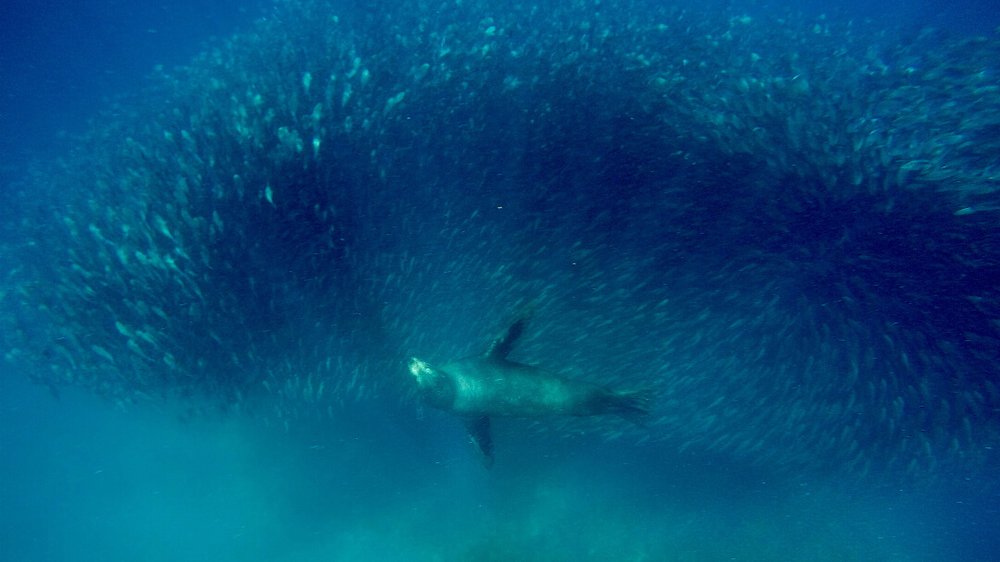
When I first moved to the Galapagos to begin my position as marine ecologist at the Charles Darwin Foundation (CDF) a year ago, I was in disbelief each time I went snorkelling. Seeing tropical corals and parrot fish, sea lions and sub-Antarctic penguins all sharing the same coastal habitat was mind-blowing.
This unique combination of marine life happens nowhere on this planet but here. That is because this isolated archipelago in the Eastern Tropical Pacific Ocean is at the crossroad of major warm and cold water currents, making it a cradle of unique marine biodiversity.
But isolated as they may be, the Galapagos Islands aren’t immune to the impacts of anthropogenic climate change.
What are the implications and ripple effects of a warming ocean, sea level rise, ocean acidification and the intensification of El Niño events for the Galapagos’ marine biome? These are fundamental questions that remain unanswered. This sense of urgency surrounding the irreversible change in the Galapagos motivated the marine scientists of the CDF – the team that I’m part of – to develop a priority marine research agenda centered around climate change.
To make sure we nail it, we called upon top-notch leading marine scientists, socio-economic and policy experts in climate change, to give us a hand. It all kicked-off on the 25th of October when we held a four-day International Climate Change Workshop at the Charles Darwin Research Station.
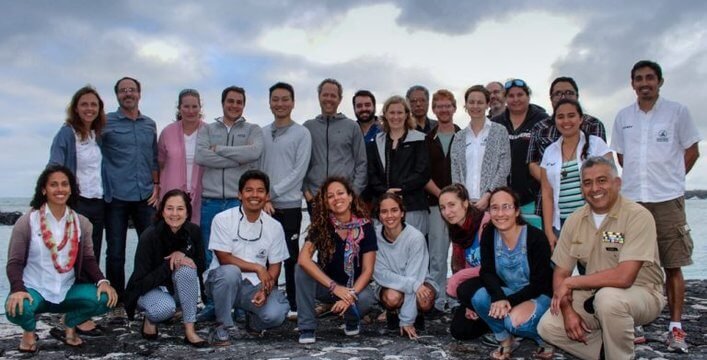
The atmosphere at the workshop was electric, especially for an early-career marine scientist like myself. For the first time I got to see how the wicked multi-faced problems that climate change is imposing on this iconic archipelago can be addressed by a cross-disciplinary approach.
The situation today in the Galapagos is precarious – both ecologically and economically – thus, only by proactively planning for adaptation and implementing dynamic new policies aimed at mitigating the impacts of climate change will the Galapagos be able to thrive in the future.
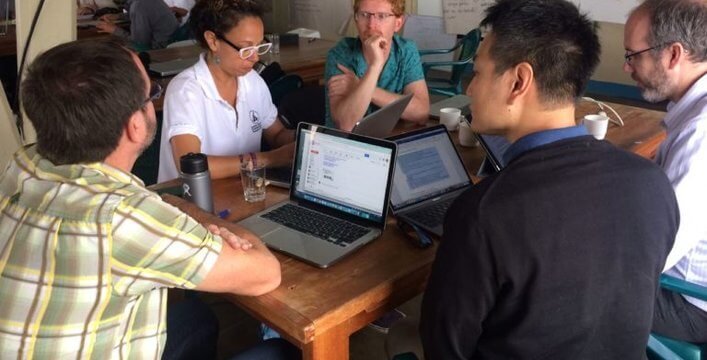
Among the things that struck me during the workshop was listening to Daniel Pauly explain some of the key implications of warming oceans: “Fish, especially the larger ones, will have difficulty breathing, as warmer ocean can hold less oxygen, meaning they will migrate to colder and deeper waters, and over time many fish species will have to shrink in size to adapt to a sea with less oxygen.”
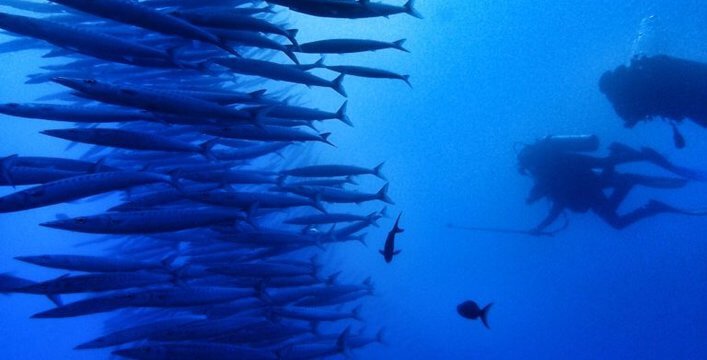
You can already start to imagine the chain reaction of detrimental impacts that the displacement of fishes will have on the region. Here on the Enchanted Islands, the consequences would be harsh for fishermen and fatal for many fish-eating animals, including iconic species such sea lions, marine iguanas, penguins, cormorants, boobies and sharks, which tourists pay thousands of dollars to come and see.
Another hot discussion topic was El Niño, the strongest inter-annual climate fluctuation on Earth. The Galapagos lie at the epicentre of this cycle that occurs once every 15-20 years, though current predictions estimate that these events will take place more frequently and will be more intense due to the changing climate. As a result, Galapagos can serve as a microcosm to explore and study creative solutions for adaptation and designing policy solutions for people and nature that can be replicated elsewhere. The Galapagos Islands first showed us how life evolved on this amazing blue planet, and now it can show us how we need to adapt to climate change.
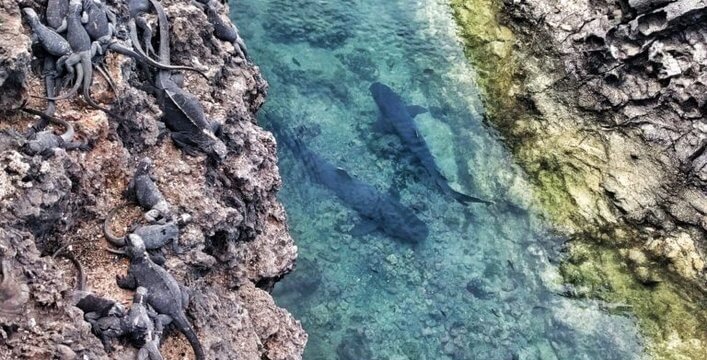
It was fascinating to witness the coming together of such an important research agenda. Jon Witman’s remarks on the last day nicely sum it all up: “I have attended countless workshops, and this is one of the few where the attendees have worked together so effectively to develop solid and actionable outputs.”
Click here for information about the workshop. Stay tuned for information about the workshop report and summaries of proposed research projects. Since all of CDF's scientific research depends solely on donations, you can help us continue investigating the effects of climate change. Please donate today.
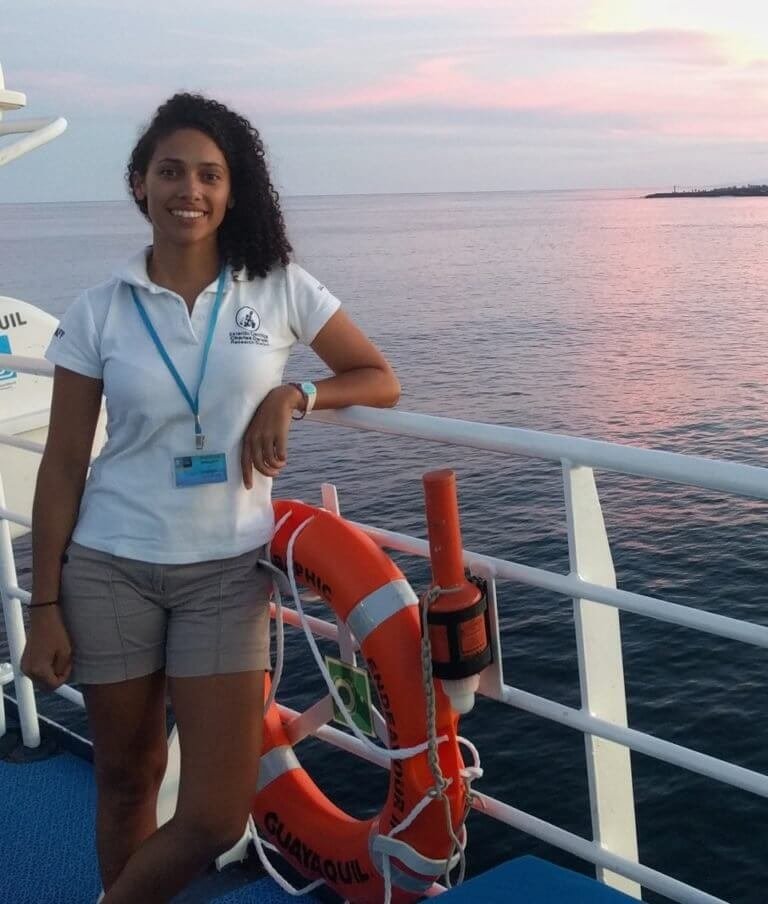
Salomé Buglass is a marine scientist at the CDF since 2016. She is engaged in several applied research projects that support the management of the Galapagos Marine Reserve. These include undertaking the first comprehensive characterization of deep-sea ecosystems in the Galapagos, supporting the Galapagos National Parks in evaluating the effectiveness of the no-take reserves, monitoring the sub-tidal coastal ecosystems, and assessing the spatial and temporal distribution of shark populations within the reserve.
Salomé has a background in biogeography with a strong focus on climate change and has worked with marine ecosystems and fisheries in the Caribbean, Canada. and most recently in Ecuador. She believes healthy ocean and land resources are the foundation for human wellbeing, and her professional and personal goal is to work towards researching and implementing solutions that can counter the degradation of our natural environments, support their conservation and sustainable use, and improve community resilience.




